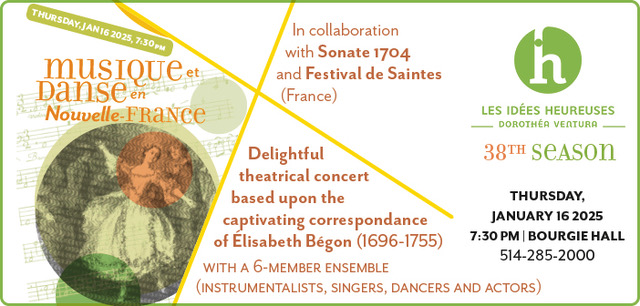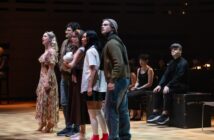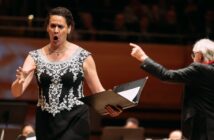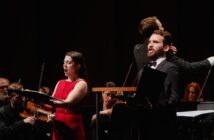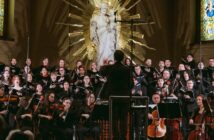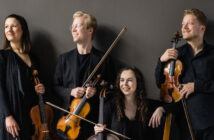ORFORD – Orford Musique, as the festival in the Eastern Townships now calls itself, got under way Friday night, almost a month after it started. The educational camp fires up well before the concert calendar. Thus the first non-student program, paradoxically, represented a farewell for at least a few of the teachers who had spent most of June in residence.
It also represented the kind of event that I would gladly cross several county borders to hear. Louis Spohr’s Duo for Two Violins in A minor Op. 67 No. 1? Just try to hum that one.
Or more to the point, just try not to after a performance by Jonathan Crow and Andrew Wan. Concertmasters respectively of the Toronto Symphony Orchestra and OSM, and also the top half of the New Orford String Quartet, these gentlemen found the perfect balance of independence and cohesion, making the sound full while clarifying the form.
While we are now likely to view with some amusement Spohr’s status in his day as a rival of Beethoven, this three-movement score shows no shortage of melodic invention or craftsmanship. Shall we take those Beethovenian trills as coincidental?
Next came another case of compare and contrast. Alexander Zemlinsky was destined to be associated with the Schoenberg school, but in 1896 he was capable of writing a Trio that was so Brahmsian that the master himself recommended its publication. James Campbell (clarinet), Yegor Dyachkov (cello), and Jean Saulnier (piano) moderated its melancholy by keeping textures light.
If Zemlinsky was inward-looking, Francis Poulenc was a robustly extrovert in the Sextet for piano and winds of 1932 (revised in 1939). Mostly joyous but touched by shadows and halftones, this three-movement masterpiece was replete with clever instrumental combinations and quicksilver rhythmic shifts. Saulnier made an articulate quarterback while flute Julien Beaudiment (Opéra national de Lyon), oboe Richard Killmer (Eastman School of Music), Campbell (University of Indiana), bassoon Stéphane Lévesque (OSM and McGill), horn James Sommerville (Boston Symphony and New England Conservatory) provided all-star collaboration. Love those perfectly balanced dissonances.
Four accomplished students (including the only woman to grace the stage all evening) joined the pros in Charles Gounod’s Petite symphonie, an exercise in warm sonority, lyric lines and solid form that would be heard more often if instrumental casts like these were not so hard to assemble. Flutist Denis Bluteau (OSM) gave the Andante cantabile a human touch. Everything was splendidly contoured. And imagine: no conductor.
The program started with Dvorak’s Silent Woods as played with a full heart by a featured student, cellist Derek Louie, with Yannick Rafalimanana at the piano. Salle Gilles-Lefebvre was less than full, possibly in part because the new Orford website confusingly styled the concert of the following night as the official opening.
I was not able to make this, but it should be noted that incoming Orford artistic director Wonny Song joined the Cecilia String Quartet in Dvorak’s Piano Quintet Op. 81. Reports earlier this year suggested that Marc-André Hamelin would be the featured artist on July 2. His interesting excuse was that he had a wedding to attend last weekend. His own.


